Remembering Ravi Shankar
Category:
Tags:
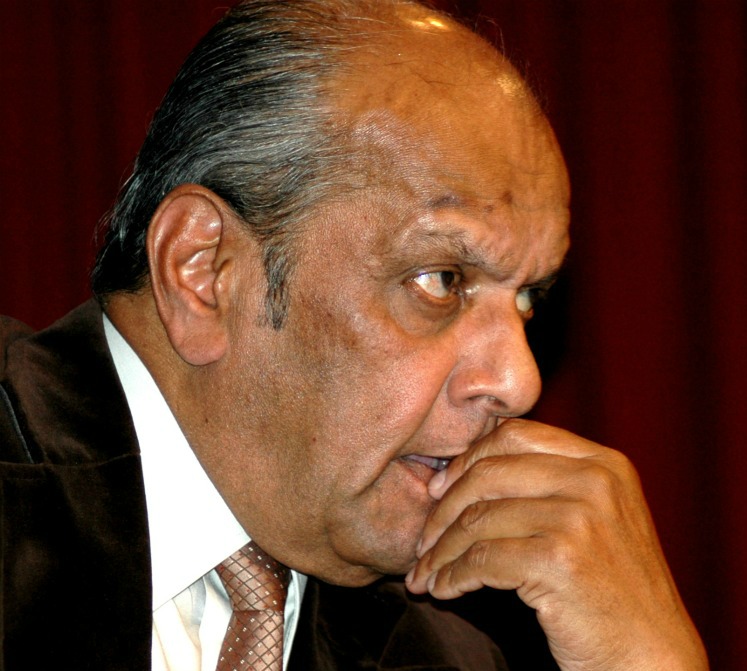
Reginald was born in Lahore before Partition. He writes books on various subjects pertaining to South Asia. A former London journalist, he now lives in Mid Wales with his actor wife Jamila. His latest book is Shaheed Bhagat Singh and the Forgotten Indian Martyrs, Abhinav Publications, New Delhi. A member of the Society of Authors, he is a Fellow of the Royal Society of Arts.
Many years ago, in the 1950s, when I was student in Simla, Ravi Shankar visited the town and gave a concert at the local Kali Bari temple.
y friend Ajay Varma and I went to hear him, and we were enchanted. That ignited my interest in Indian classical music.
Over the years, I never missed recitals, whether vocal or instrumental. I read books on Music and Dance, attended seminars and sat with scholars to learn the finer points of these arts. I even took lessons in vocal music and tried to learn the tabla.
In the 1960s, it was Ravi Shankar who brought Indian music to the West in a big way. I was living in London at that time. I persuaded The Times of London to publish reviews of Indian classical music and dance. After that, my reviews were regularly published in that prestigious newspaper. They somehow 'caught on' and helped to promote these art forms in the United Kingdom.
Whenever Ravi Shankar came to London, I used to meet him and have long talks with him. He became very friendly with my wife Jamila and me. He gave me much musical knowledge. Hence, when, in 1976, Jamila and I co-authored The Music of India for Kahn and Averill, the London publishers of books on music, I asked Ravi-ji to provide a short Foreword, which he did.
I did not give him a draft or even any hints as to what the Foreword could say. That would be insulting and presumptuous. The book is even today a basic, fair and unbiased introduction to Indian classical music, both Hindustani and Karnatic, still selling worldwide through Amazon.
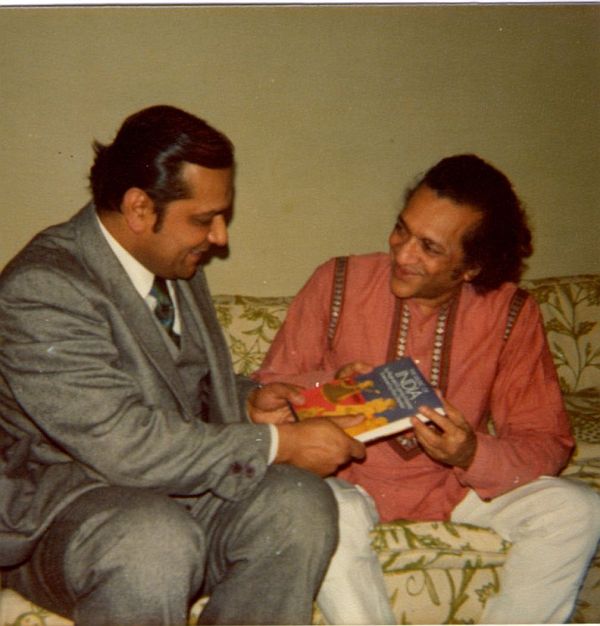

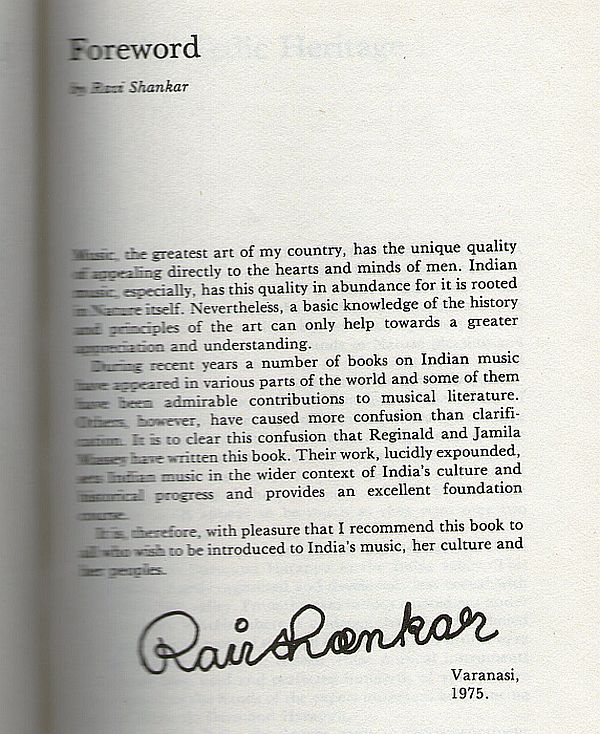
Later, when Deutsche Grammophon released Ravi-ji's Homage to Mahatma Gandhi and Baba Allauddin, he asked me to write the technical and cultural cover notes to his original and important compositions.
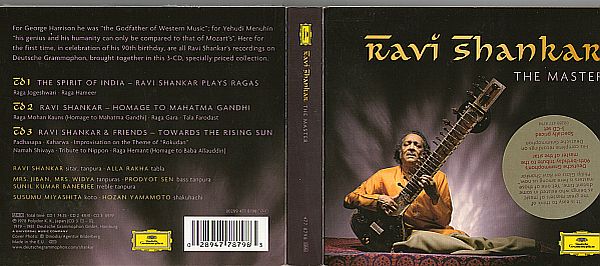
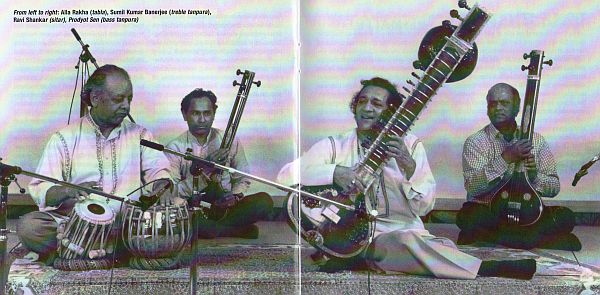
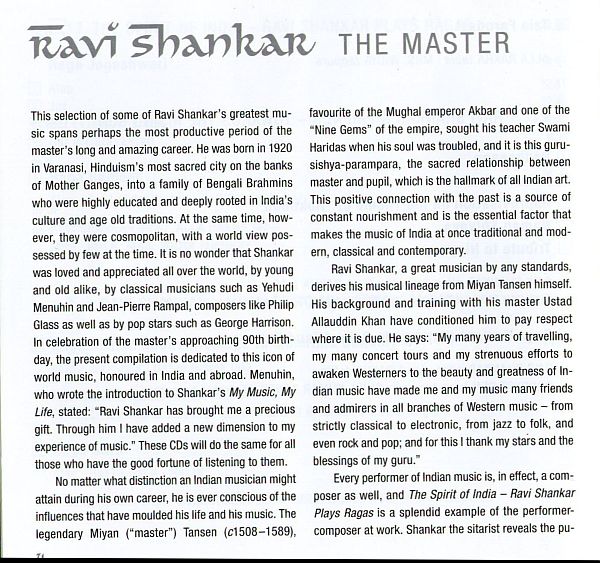
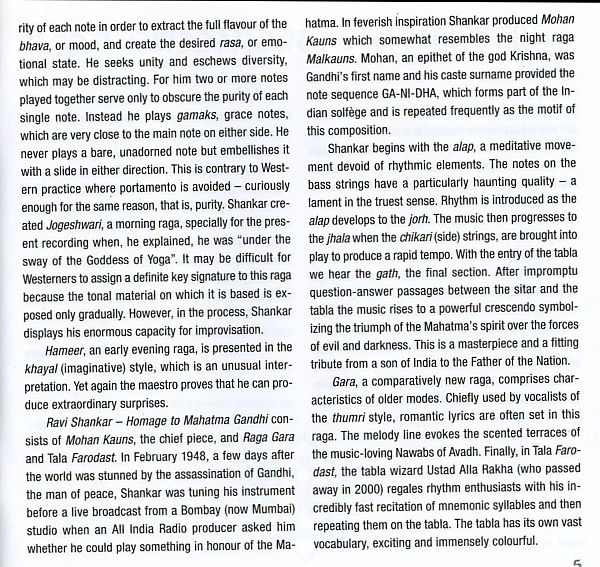
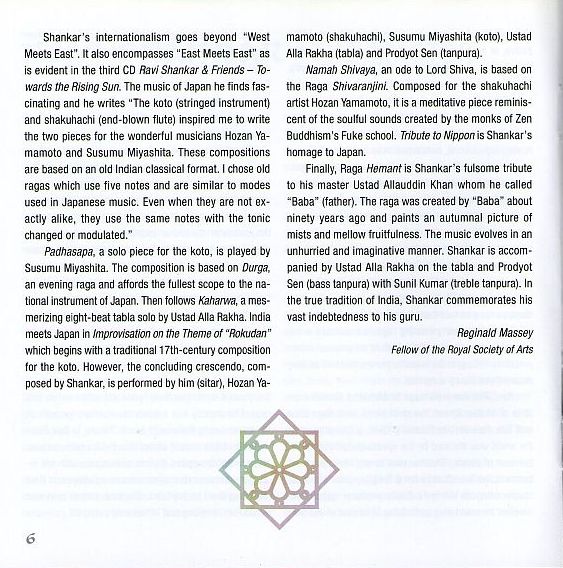
Ravi-ji was always gracious to Jamila and me. When my son was born, I named him Ravi and asked Ravi-ji to place his hand on my son's head.
Later, when Ravi-ji died in 2012, I wrote his obituary for The Guardian.
The man was a thorough professional. This is where he scored over other Indian musicians from both North and South. He started on time and ended on time. He never indulged in drugs or alcohol.
But he was a ladies' man. He treated his first wife Annapurna, the daughter of his Guru Ustad Allauddin Khan Sahib (and sister of the celebrated sarod player Ali Akbar Khan) rather badly. His other liaisons were sad. However, his last relationship with a married woman, Sukanya Kotiyan, was happy. He married her, and they were good for each other.
Recently I read somewhere that his daughters Norah and Anoushka, from two different women, had been reconciled. That is good news.
Jamila and I loved him even though he was not a perfect man. But, then, who is?
As I write these lines, I am sure that Ravi-ji and his friend Ustad Alla Rakha Khan Sahib are in Paradise enjoying the music and dance of the most exotic apsaras.
Bharat Ratna Pandit Ravi Shankar deserves the pleasures of Paradise.
Like Miyan Tansen of Akbar's court, he was a Jewel of India.
© Reginald Massey 2014
Add new comment